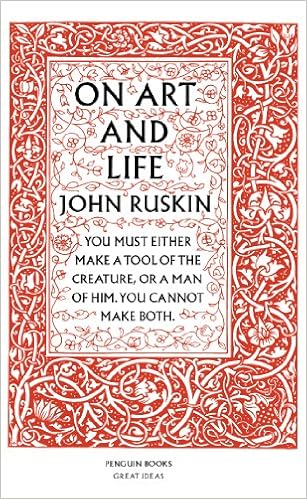You may well imagine the moderate joy that met me reading the following:
I believe then, that the characteristic or moral elements of Gothic are the following, placed in order of their importance:
1. Savageness
2. Changefulness
3. Naturalism
4. Grotesqueness
5. Rigidity
6. Redundance
These characters are here expressed as belonging to the building; as belonging to the builder, they would be expressed thus:
1. Savageness or Rudeness
2. Love of Change
3. Love of Nature
4. Disturbed Imagination
5. Obstinacy
6. Generosity
This is asking to be employed as a set of character stats.
Well then, this Gothic Sextet bears some resemblance to the Strength-Dexterity-Intelligence-Wisdom-Constitution-Charisma litany well known to us. But they aren't quite the same things. However, if we think of each statistic as representing an intrinsic element to a character class, it works somewhat better.
'Savageness' speaks for itself; we might define it in this instance as the ability to commit savage acts. Further, lest we forget, we have a pre-existing savage archetype.
 |
| Gothic? Perhaps not. Savage? Definitely. |
'Changefulness' brings to mind the ability of Rogues and such figures - the ability of to shift away or through trouble, to adapt and survive. The 'adapt and survive' mentality probably suits the notion of a Ranger also. As for 'Love of Change' - have you ever known a Rogue to neglect the possibility of securing even a small quantity of loose change?
'Naturalism' brings to mind almost inevitably the figure of the Druid; it is an easy leap from there to the Cleric. But is this a good fit for Wisdom? Well, Wisdom is always a bit tough to get a handle on; witness this discussion. But there's an element of self-knowledge about Wisdom; knowledge of one's own nature; nosce te ipsum.
'Grostequeness' by contrast seems bound to be linked to the Wizard or other Magic-User. Ruskin offers an elaboration on some of these traits. Of the Grotesque, he describes "the tendency to delight in fantastic and ludicrous, as well as in sublime images, is a universal instinct of the Gothic imagination." The fantastic, ludicrous and sublime; the Grotesque and the Disturbed Imagination. This may not sound like Gandalf or Merlin, but it certainly sounds like Rhialto the Marvellous and his Dying Earth colleagues, or like Zagyg himself.
 |
| Ninguable of the Seven Eyes and Sheelba of the Eyeless Face are, by contrast, grotesque wizards. Presumably. |
As obstinate and rigid, indeed, as the mountains in which they dwell.
'Redundance' and 'Generosity' do not instantly point towards Charisma, or indeed towards Elves. But let us consider the notion, first, of 'generosity of nature' - which may be part of the idea of an unfeigned Charisma. As for 'Redundance', let us turn once again to Tolkien and his slowly withering, dying elder race. The world of the Elves is passing away and they will have little or no place in the new age.
On this gloomy note, let us end this little digression. I doubt Ruskin will loom terribly large upon the next occasion that you take up 3d6 and begin rolling, but for those who wish it, there is a small degree of serendipity between this and the column of figures on your character sheet!
This owes something in it's conception to Joseph Manola's If Romantic-Era Artists Ran D&D Campaigns (AKA 'a thin excuse for an image dump'), which is far more wide-ranging in scope and imagination than this. Doubtless John Ruskin would have something to say about those campaigns!

No comments:
Post a Comment